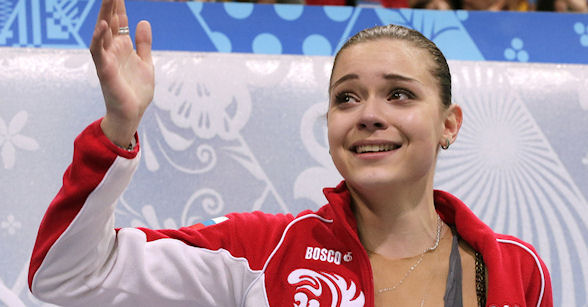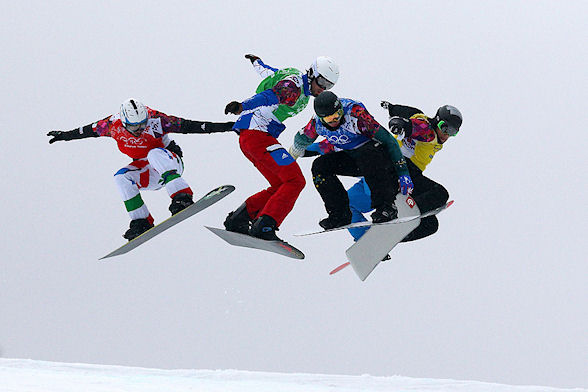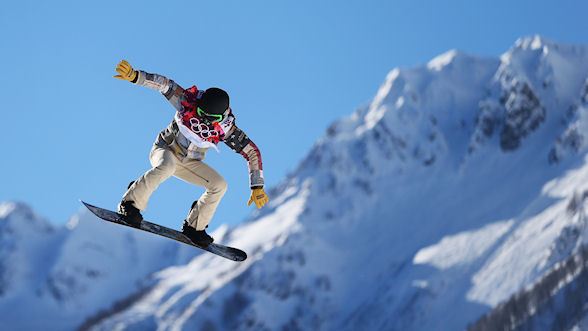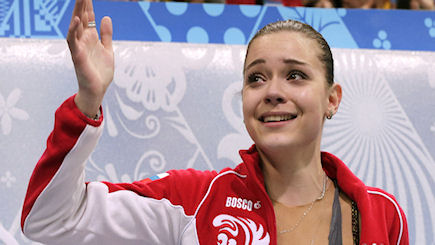The Sochi Winter Olympics are done and dusted and despite all the pre-Games concerns over security issues and the state of facilities which were still being finished as athletes arrived, it’s fair to say that Sochi managed to put on a pretty decent show. But whether it was on or off the ice, or snow as it may be, there remain plenty of talking points to come out of these Olympics. Here are five things WGM learned from the 2014 Games.
1. Judging bias remains. Figure skating has a long and proud history in the Olympic family and is one of the few Winter Olympic sports in which the best skaters can claim to be household names more than just once every four years. Think Torvill and Dean. It has also been bathed in controversy over the years – often due to questionable judging – and the International Olympic Committee has overhauled the judging system a number of times to try and address the issue. It hasn’t worked. In the women’s ice skating in Sochi, 17-year-old Russian Adelina Sotnikova won gold despite pretty much everyone else who watched their routines agreeing South Korea’s Kim Yuna was a clear standout. With the judging panel consisting largely of judges from the Eastern bloc, many commentators had feared such a result in the lead-up to the Games.

Adelina Sotnikova
2. Snowboard Cross is brilliant. Was there any more exciting event in Sochi than this? Four snowboarders hurtle down a winding track and over a myriad bumps and jumps as they race to the finish line, with the top two from each race progressing to the next round until they reach the final, where three win a medal. The great thing about Snowboard Cross is its unpredictability. With plenty of crashes, riders can hit the deck or take a rival out at any moment, meaning the result of every race is in doubt right up until they cross the finish line. Of course, we saw more than one rider leading over the final jump only to miss their landing and have two opponents race pass and steal their spot. Brilliant!

Men’s snowboard cross
3. Russians have a sense of humor. Who would have thought? It was reported that controversial President Vladamir Putin was furious after a light display that was supposed to see five snowflakes turn into the five Olympic rings failed to light properly, leaving only four of the five rings visible. But just two weeks later at the Closing ceremony, a troupe of 700 dancers formed the shape of the five rings but delayed the formation of the fifth in a clever and amusing nod to the Opening Ceremony malfunction. Not only was it good to see them taking a light-hearted approach, it was also impressive that they had made such a late adjustment to a routine they had no doubt been working on for years.
4. Snowboarders have more fun. One thing we noticed during these Games is that many of the snow sports – particularly the snowboarding events – are as much about having fun as winning medals. For many, simply being a part of the Olympic Games was good enough for them and even some of the main medal hopes were all smiles after missing the final or bowing out with a big fall. They clearly love what they do. By comparison, sports such as figure skating see young athletes placed under extreme pressure with more than one coach seen to be expressing their disgust at their skater when they failed to win gold. What a contrast between the two sports.

Sage Kotsenburg’s amazing trick
5. We love the Winter Olympics. Sure, we don’t understand half the sports we’re watching and some seem downright absurd, but there is something special about the Winter Games. While the Summer Olympics tends to boast more traditional sports based on strength, speed and physical endurance, the Winter version is moving more and more towards X-Games style events which are based as much on who is willing to go more extreme as it is on raw talent. In particular we loved the story of men’s slopestyle snowboarder Sage Kotsenburg from the USA, who wasn’t seen as a major medal contender and knew he had to produce something special to finish in the top three. So he called his coach while standing at the top of his run and told him he was going to try a trick he had never performed before and hadn’t even trained for. It involved spinning four-and-a-half times in the air while grabbing the board, and when he amazed even himself by actually landing it he found himself with the gold medal!







